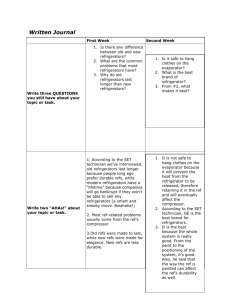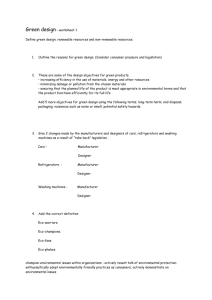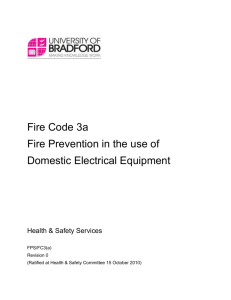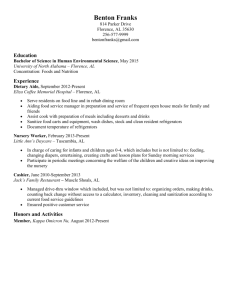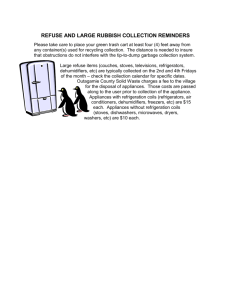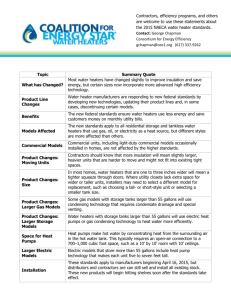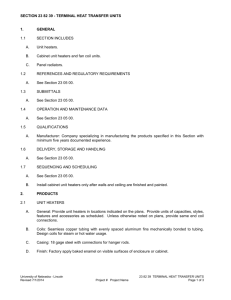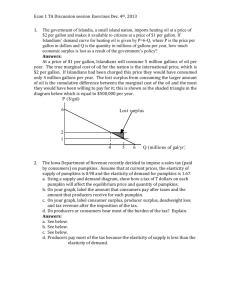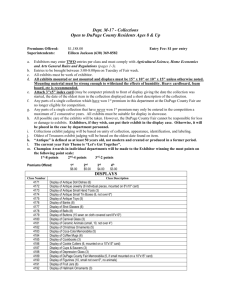a transcript - e
advertisement
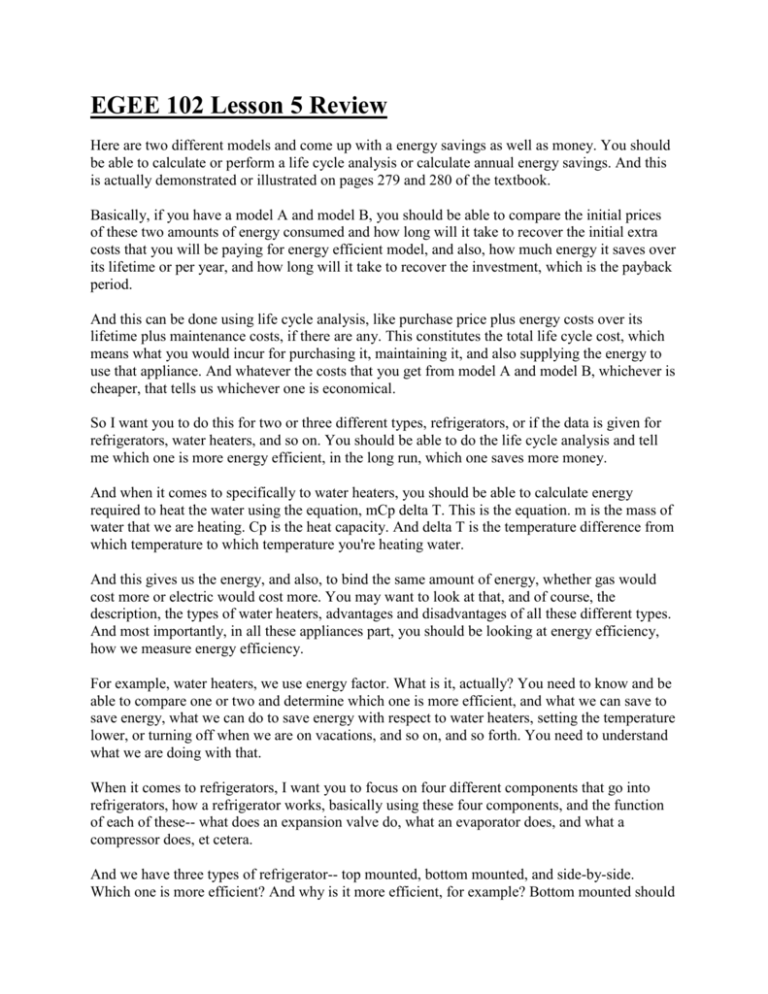
EGEE 102 Lesson 5 Review Here are two different models and come up with a energy savings as well as money. You should be able to calculate or perform a life cycle analysis or calculate annual energy savings. And this is actually demonstrated or illustrated on pages 279 and 280 of the textbook. Basically, if you have a model A and model B, you should be able to compare the initial prices of these two amounts of energy consumed and how long will it take to recover the initial extra costs that you will be paying for energy efficient model, and also, how much energy it saves over its lifetime or per year, and how long will it take to recover the investment, which is the payback period. And this can be done using life cycle analysis, like purchase price plus energy costs over its lifetime plus maintenance costs, if there are any. This constitutes the total life cycle cost, which means what you would incur for purchasing it, maintaining it, and also supplying the energy to use that appliance. And whatever the costs that you get from model A and model B, whichever is cheaper, that tells us whichever one is economical. So I want you to do this for two or three different types, refrigerators, or if the data is given for refrigerators, water heaters, and so on. You should be able to do the life cycle analysis and tell me which one is more energy efficient, in the long run, which one saves more money. And when it comes to specifically to water heaters, you should be able to calculate energy required to heat the water using the equation, mCp delta T. This is the equation. m is the mass of water that we are heating. Cp is the heat capacity. And delta T is the temperature difference from which temperature to which temperature you're heating water. And this gives us the energy, and also, to bind the same amount of energy, whether gas would cost more or electric would cost more. You may want to look at that, and of course, the description, the types of water heaters, advantages and disadvantages of all these different types. And most importantly, in all these appliances part, you should be looking at energy efficiency, how we measure energy efficiency. For example, water heaters, we use energy factor. What is it, actually? You need to know and be able to compare one or two and determine which one is more efficient, and what we can save to save energy, what we can do to save energy with respect to water heaters, setting the temperature lower, or turning off when we are on vacations, and so on, and so forth. You need to understand what we are doing with that. When it comes to refrigerators, I want you to focus on four different components that go into refrigerators, how a refrigerator works, basically using these four components, and the function of each of these-- what does an expansion valve do, what an evaporator does, and what a compressor does, et cetera. And we have three types of refrigerator-- top mounted, bottom mounted, and side-by-side. Which one is more efficient? And why is it more efficient, for example? Bottom mounted should be the most efficient because the cold stays at the bottom and warm places. So top mounted is not that efficient compared to bottom mounted. And side-by-side is not efficient. But if you've ever have to buy side-by-side, which most of us do these days, you have to go for energy efficiency or Energy Star models, which typically exceed the federal requirements. And what you can do to reduce energy consumption of refrigerators, that's something that you may want to look at the tips that you can follow. And clothes washers. Front loading, top loading, which one is more efficient? Front loading is more efficient because clothes are lifted and dropped continuously. And that cleans the clothes also very well. And you need to know the difference between energy factor, water factor, and modified energy factor. Look at the textbook for more description of these things or look at the notes online. And you need to know the difference between those three, actually, and how to calculate those things. And clothes dryer are pretty simple-- energy efficiency, how we monitor. And what is the operating principle of your dishwasher? And--
